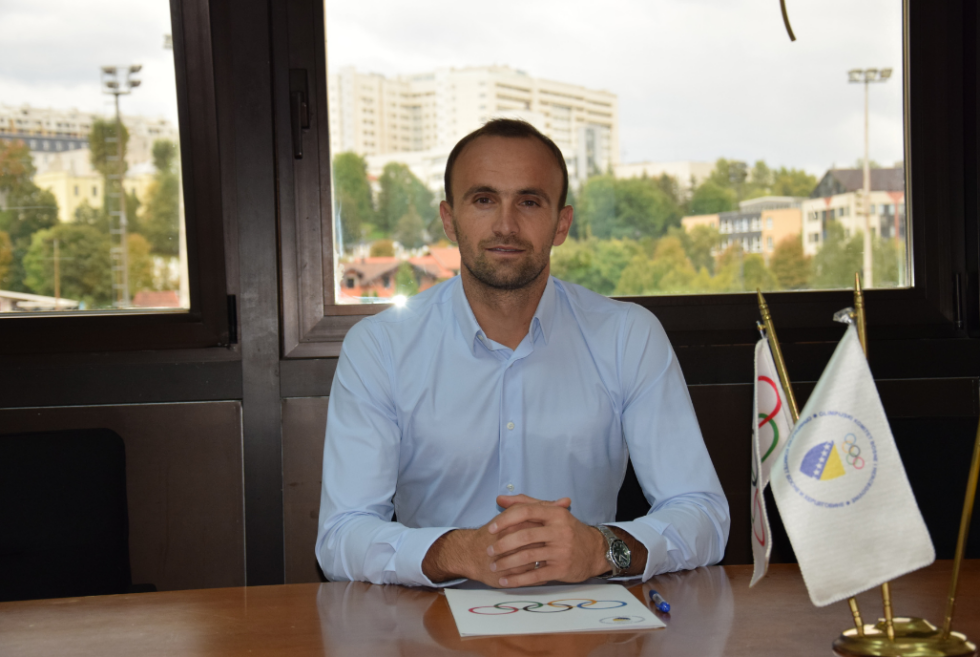
Introduction
Amel Tuka is not just a name in the world of athletics—he’s a symbol of perseverance, national pride, and unrelenting determination. Hailing from the heart of Bosnia and Herzegovina, Tuka has risen to global prominence as one of the fastest men in the world over 800 meters. With multiple medals on the world stage and a personal record that places him among the elite in middle-distance running, Amel Tuka is a true ambassador of sport and resilience.
Early Life and Background
Born on January 9, 1991, in the small town of Kakanj, Bosnia and Herzegovina, Amel Tuka grew up in a post-war nation where resources for athletes were limited, and infrastructure was still recovering. Yet, these limitations did not dim his ambition. Initially more focused on football, Tuka only turned to track and field in his late teens, a relatively late start for most elite runners.
Despite the challenges, he quickly made a name for himself locally and showed tremendous promise in the 800-meter discipline. His early passion and work ethic set the stage for a remarkable journey that would soon captivate his nation and the wider athletics community.
Rise to Prominence
Amel’s breakthrough on the international scene came in 2015 when he stunned the world by posting the fastest 800-meter time globally that year—1:42.51—at a Diamond League meet in Monaco. That run not only shattered Bosnia and Herzegovina’s national record but also marked Tuka as a force to be reckoned with.
Later that year, at the World Athletics Championships in Beijing, Tuka secured a bronze medal in the men’s 800 meters, becoming the first Bosnian athlete to win a medal at the World Championships. His performance electrified fans and brought immense pride to a country often overlooked in international sports.
In 2019, he took things a step further by winning a silver medal at the World Championships in Doha, solidifying his status among the world’s best. His ability to surge past competitors in the final 100 meters of the race became his signature move—strategic, powerful, and thrilling to watch.
Training Philosophy and Education
Amel Tuka attributes much of his success to rigorous training, mental discipline, and the guidance of experienced coaches. He trained for many years in Italy under the supervision of coach Gianni Ghidini, focusing on speed endurance, tactics, and psychological readiness.
Off the track, Tuka is a well-rounded individual with a degree in Mechanical Engineering. His academic background reflects the same discipline and analytical approach that he brings to his sport. This dual identity—athlete and scholar—makes him a role model for young people who aspire to balance education and elite sports.
Challenges and Comebacks
Like many top athletes, Tuka’s career has not been without setbacks. Injuries have occasionally interrupted his momentum, particularly in the years following his 2015 breakthrough. However, each time he faced adversity, Tuka responded with resilience and focus, returning to the track stronger and more determined.
His comeback performances have inspired countless fans in Bosnia and across the globe, particularly in regions where opportunities are limited and dreams often feel out of reach. Tuka has shown that greatness is possible, even from humble beginnings.
Social Media and Public Presence
On Instagram, Amel Tuka is known as @ameltukaa, where he shares glimpses into his life as an elite athlete. His posts range from intense training sessions and competition highlights to heartfelt messages about his homeland, family, and faith.
Tuka uses his platform not only to celebrate victories but also to share the realities of his journey—the grind, the sacrifices, and the emotional highs and lows. He often posts inspirational messages, reinforcing themes of gratitude, perseverance, and humility.
His growing online following appreciates his authenticity, making him not just a sports icon, but also a relatable figure who remains grounded despite international acclaim.
Legacy and Impact
Amel Tuka’s influence extends far beyond the finish line. In a country still finding its footing on the global stage, his success represents a beacon of hope and a source of unity. Young athletes in Bosnia and Herzegovina now have a role model who has proven that global success is possible, even in sports with traditionally limited local support.
He has also contributed to the broader conversation around the role of sports in rebuilding national identity, particularly in post-conflict societies. Tuka has frequently spoken about the pride he feels in representing Bosnia and Herzegovina, making every stride not just for himself, but for his people.
Looking Ahead
At 34, Amel Tuka continues to train and compete at the highest level. With his eyes set on future championships and possibly another Olympic run, his story is far from over. Whether he stands on the podium again or not, his legacy is already cemented—as a record-breaking athlete, a national hero, and a symbol of what can be achieved with heart, faith, and dedication.
Conclusion
Amel Tuka’s journey from a small Bosnian town to the world’s biggest athletic stages is a powerful narrative of grit, talent, and national pride. With every race he runs, he carries with him not just the flag of Bosnia and Herzegovina, but the dreams of those who believe that greatness can come from anywhere. In the world of middle-distance running, Amel Tuka is not just a competitor—he’s an inspiration.





